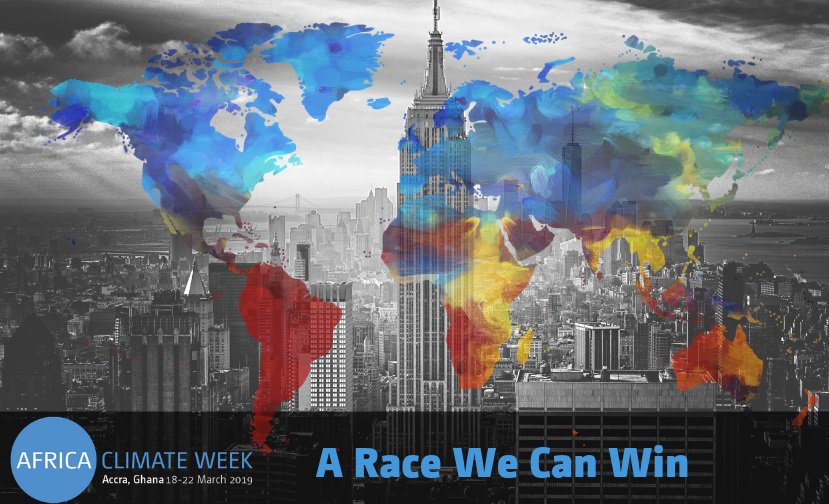Last week, over 2,500 delegates representing governments, business leaders and civil society stakeholders gathered in Accra, Ghana, within the 2019 Africa Climate Week (ACW2019), to discuss ways to advance climate action.
This event was the first of the series of regional climate events to be hosted this year ahead of the UN Climate Action Summit 2019 in September.
The Regional Climate Weeks are designed to foster engagement between governments and non- government stakeholders to advance regional climate action.
The event took place against the backdrop of one of the worst tropical cyclones on record to affect Africa and the Southern Hemisphere as a whole, the intense tropical Cyclone Idai that affected over two million people across Malawi, Mozambique and Zimbabwe.
ACW2019 focused on how engagement between governments and non-governmental stakeholders can be strengthened across key sectors in Africa, specifically around issues relating to nature-based solutions, the energy transition and the critical role of cities and local action in addressing the climate challenge.
The World Farmers’ Organisation (WFO) was present in Accra. Denis Kabiito from Uganda, facilitator of the WFO Youth Committee, and Nelson Agyemang from Ghana, facilitator of the WFO Working Group on Innovation, were engaged in several panels and roundtables, bringing the real-life perspective of farmers into the debate.
Farmers are at the frontline of climate change whose effects are a serious threat to their daily activities and consequently to their incomes. Furthermore, natural disasters overlap climate change and affect the agricultural sector in different ways, forcing farmers to react by changing the production cycles in terms of timing and location, facing problems in terms of damages to their infrastructures and production means. However, farmers still produce, trying to cope with such events and being resilient but their real needs and challenges are often underestimated in policy debates.
Farmers are economic actors and decision-making is central to their farms’ management. Each decision has an impact on their farms and consequently on their income. Given this and taking into account the unpredictability of climate change and its impact on agriculture, the more farmers are aware of the risks and of the strategies they can implement to adapt to climate change, the more sustainable and resilient their farm will be.
Involving farmers in the planning of such strategies, together with scientists and other stakeholders, provide a reliable insight of what the agricultural sector has to deal with every day.
Furthermore, farmers are already putting in place practices that policy makers and scientists should consider, supporting and improving them when needed and investing to scale them up when applicable.
In this regard, the Africa Climate Week was a great stage to raise awareness on “The Climakers. Farmers Driven Climate Change Agenda”, the initiative conceived by the WFO according to which all the actors in the food value chain work together with the farmers, to advance the global political dialogue on agriculture and climate change, promoting farmers’ contribution to the Paris Climate Agreement.
Working through the entire value chain in a joint bottom-up approach, including all the actors, is the only way to get effective solutions for a sustainable future that everyone can benefit.
